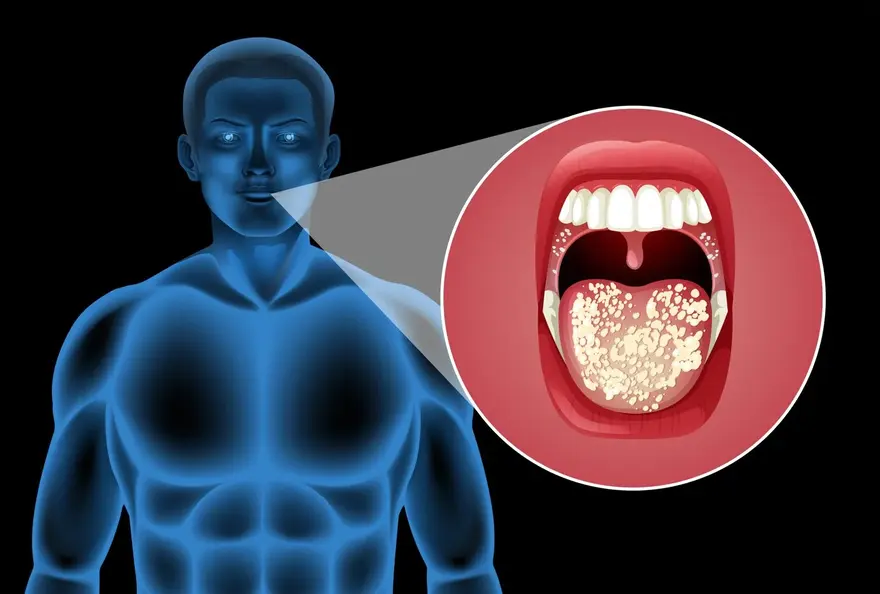Preventive Healthcare
What You Must Know About Managing Gastritis: Key Insights for Better Digestive Health
955 Views
0

Introduction
Imagine your stomach as a strong castle, surrounded by a protective barrier that defends against the ongoing assault of acids and enzymes. This barrier, called the stomach lining or mucosa, can sometimes face serious attacks, leading to inflammation which known as gastritis. When gastritis occurs, it’s like the castle’s guard is in danger! This inflammation can result from infections, specific foods, or stomach chemicals.
Gastritis is a common medical term you might have heard but might not fully understand. It’s natural to feel concerned about health issues, but knowing what gastritis is and how it affects your body can help you manage it better. This article aims to demystify the topic of gastritis, breaking down its types, symptoms, causes, and treatment options, and guide you through its management for better digestive health in a simple and understandable language.
What is Gastritis?
Gastritis is a common health concern involving inflammation of the stomach lining, or 'mucosa'. This protective layer guards the stomach from acids and enzymes. When the mucosa gets irritated or damaged, inflammation occurs as a response from the immune system, resulting in gastritis. This uncomfortable condition can be caused due to various factors, including infections and certain medications. Gastritis is a common problem for many people globally. It often leads to discomfort that can interfere with everyday activities.
But what exactly is gastritis, and how can you manage and treat it effectively? Gastritis refers to inflammation or swelling of the stomach lining. This lining serves as a shield against digestive acids, enzymes, and microorganisms that pass through the stomach daily. When this lining gets irritated for various reasons, gastritis develops, leading to discomfort that can disrupt your everyday life.
What are the different Types of Gastritis?
Understanding the types of gastritis helps in its management. It can broadly be classified into two categories: acute and chronic gastritis.
- Acute Gastritis: This type occurs suddenly and can lasts for a short period. The causes of acute gastritis are typically temporary as well.
- Chronic Gastritis: This type is more long-lasting but may not always be noticeable. It develops gradually due to persistent conditions like infections or prolonged intake of certain medications.
Within these two categories, gastritis may further be erosive or non-erosive:
- Erosive Gastritis: This type occurs when factors like acid, bile, alcohol, or certain medications damage the stomach lining, leading to painful ulcers.
- Nonerosive Gastritis: This type doesn’t cause erosions but can irritate the stomach lining, resulting in redness. One specific form is atrophic gastritis, which can lead to digestive problems by thinning or wasting away the stomach lining.
Specific types of gastritis are labelled according to their causes, such as infectious gastritis or autoimmune gastritis.
How Common is Gastritis?
If you're thinking you're the only one struggling with this condition, think again! Gastritis is actually quite common. In the US, around 8 in every 1,000 people are affected by acute gastritis, which is often linked to short-term infections, alcohol, and medications. Chronic gastritis affects about 2 out of every 10,000 people in the US. But worldwide, almost half of the population has chronic gastritis linked with a widespread bacterial infection called H. pylori. Globally, as much as half the population suffers from chronic gastritis linked to a widespread bacterial infection known as H. pylori.
What are the Symptoms of Gastritis?
Identifying gastritis symptoms can be challenging as it may not always cause noticeable symptoms. However, when the stomach lining can no longer protect itself from acids and enzymes, you might experience symptoms such as:
- Loss of appetite or feeling full soon after eating
- Stomach pain and bloating
- Nausea and/or vomiting
If you have a bleeding ulcer due to erosive gastritis, symptoms may include:
- Black blood in your stool (melena)
- Black blood in your vomit (coffee ground emesis)
Recognizing these symptoms is important for seeking timely medical attention, as early diagnosis and treatment can help manage the condition effectively.
How do you recognise Gastritis Pain?
Gastritis pain is usually felt in the upper middle abdomen or the "epigastric "region. The inflammation causes general discomfort in this area. If an ulcer develops due to erosive gastritis, you might experience a more localised burning or a gnawing pain which often improves after eating. Gastritis pain typically occurs in the upper middle abdomen. This pain can be difficult to pinpoint but is generally characterised by a burning or gnawing sensation, which might feel better after eating.
What Causes Gastritis?
The inflammation caused by gastritis is generally a response to threats to your stomach lining. These can include infections and substances you take in:
- Infections: Both bacterial and viral infections can lead to short-term acute gastritis. Additionally, chronic gastritis can develop from a prolonged infection with H. pylori.
- Chemicals: Alcohol and some drugs can cause either acute or chronic gastritis by chemically eroding the stomach lining (erosive gastritis). One of the most common causes of gastritis is the overuse of NSAIDs (nonsteroidal anti-inflammatory drugs), like aspirin and ibuprofen. Certain recreational drugs particularly cocaine, can also contribute to developing this condition.
- Autoimmune Disease: Chronic autoimmune gastritis can occur spontaneously or as a side effect of another autoimmune condition.
- Reduced Blood Supply: Major surgery, trauma, or critical illness can cause acute gastritis. Severe physiological stress can make your stomach lining more vulnerable to digestive chemicals.
- Additional Causes: These include radiation therapy, chemotherapy, bile reflux, etc.
- Reduced Blood Supply: Major surgery, trauma, or critical illness can lead to acute gastritis.
- Reduced Blood Supply: Major surgery, trauma, or critical illness can lead to acute gastritis by decreasing blood flow to the stomach lining. This decreased blood flow makes the stomach more vulnerable to damage from acids and enzymes.
- Stress: Severe physiological stress can make the stomach lining more vulnerable to damage from digestive chemicals.
- Additional Causes: Other factors include radiation therapy, chemotherapy, and bile reflux, among others.
What are the Complications of Gastritis?
While gastritis is typically temporary and not serious, if left untreated for an extended period can damage your stomach lining and result in complications.
- Erosive Gastritis and Ulcer Complications: Frequent ulcers caused by an erosive gastritis can lead to gastrointestinal bleeding and anaemia. Scar tissue in stomach can block the openings at the bottom (pylorus), causing gastric outlet obstruction (GOO).
- Non-Erosive Gastritis, Atrophy and Metaplasia: A long-term non-erosive gastritis can result in thinning of your stomach mucosa (atrophy) and impairing digestion as well as and absorption of certain nutrients. In rare cases, it can cause the cells in your stomach lining to transform into a different type of tissue (gastric intestinal metaplasia), which is considered a precancerous condition.
How is Gastritis Diagnosed?
While a healthcare provider might suspect gastritis based on symptoms, its confirmation usually requires a biopsy taken during an upper endoscopy exam. Additional tests might include blood tests, stool tests, and H. pylori breath tests. Healthcare providers diagnose gastritis through imaging tests like the upper GI series or biopsy performed during upper endoscopy exam.
Diagnosis of gastritis often begins with a healthcare provider checking your symptoms and reviewing your health history. Imaging tests such as an upper GI series can detect ulcers or erosion in your stomach lining. To confirm gastritis, a tissue sample (biopsy) is typically taken during an upper endoscopy exam.
Does Gastritis go away by Itself?
Yes, acute gastritis often resolves spontaneously once the root cause is addressed. In contrast, chronic gastritis necessitates professional treatment for proper management. Acute gastritis typically clears up after the triggering factor is addressed, while chronic gastritis needs treatment for resolution, as it is associated with other long-term health issues.
How Can I Relieve Gastritis Fast?
Over-the-counter medications can help soothe irritation and neutralises stomach acid for temporary relief. However, it's important to consult to a healthcare provider for long-term care. While options like proton pump inhibitors (PPIs) can provide temporary relief from gastritis symptoms, getting professional advice is still important, even if you're treating yourself.
How Do You Cure Gastritis Permanently?
The most effective gastritis treatment depends on its cause and requires professional care.
It might involve:
- Antibiotics and other medications for H. pylori
- Switching from NSAIDs if they are causing gastritis
- Addiction treatment services for substance abuse
- Targeted drugs for autoimmune diseases
- Rarely, surgery to fix gastrointestinal (GI) bleeding, ischemia or bile reflux
Permanent relief from chronic gastritis necessitates professional care that addresses the underlying cause. These include antibiotics for H. pylori infections, opting to alternative medications if NSAIDs are the culprit, or seeking addiction treatment for issues like alcohol use disorder or cocaine addiction.
Is Gastritis Contagious?
While gastritis isn't contagious, the infections causing it, like H. pylori, are. Good hygiene practices like handwashing can help prevent the spread of such infections. While gastritis itself isn't contagious, infections like H. pylori that cause it are contagious and spread via the fecal-to-oral route.
What is the Outlook for this Condition?
In most cases, gastritis improves quickly with treatment. However, for some individuals, recovery may also involve permanent lifestyle changes, like quitting smoking or alcohol. While most cases of gastritis respond well to treatment, lasting recovery may necessitate ongoing lifestyle adjustments and management of underlying chronic conditions.
Conclusion
Gastritis can be challenging, but understanding its symptoms, causes, and its treatment options can help you take charge of your health. Managing gastritis effectively is crucial for better digestive health. With the right information and support from your healthcare provider, you can navigate this condition successfully. Understanding and managing this condition can be vital for better digestive health.
Regular health check-ups and blood tests are important, as they can identify underlying issues that may lead to gastritis. Metropolis Healthcare is always here to assist you with our comprehensive diagnostic and pathology services. Our dedicated professionals strive provide accurate test results to help you manage gastritis more effectively.
Their commitment to reliable results and personalized care empowers you to take control of your health. So don’t wait, prioritise your health today with the right steps and support from Metropolis Healthcare. Let’s work towards better digestive health together!























 WhatsApp
WhatsApp